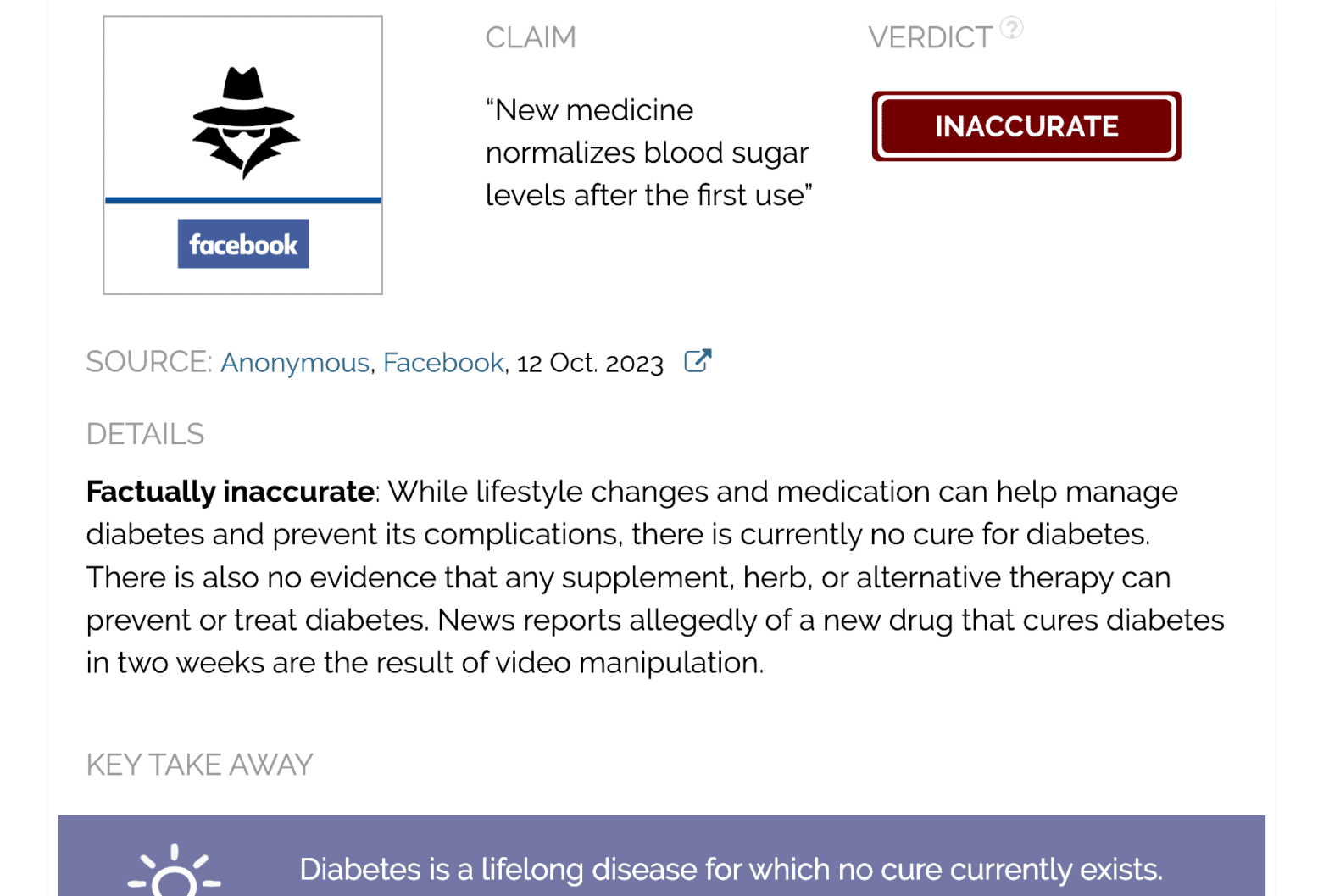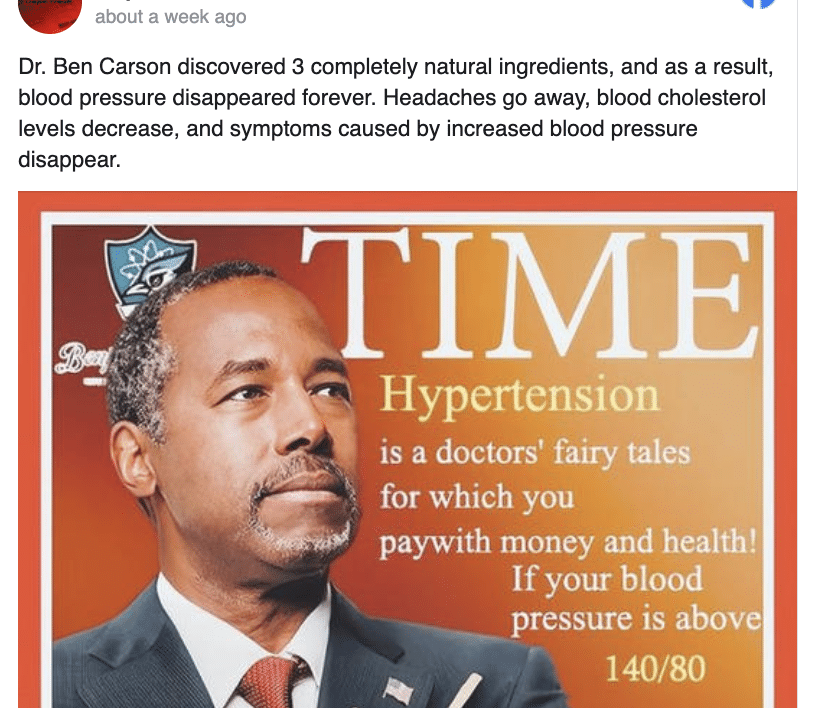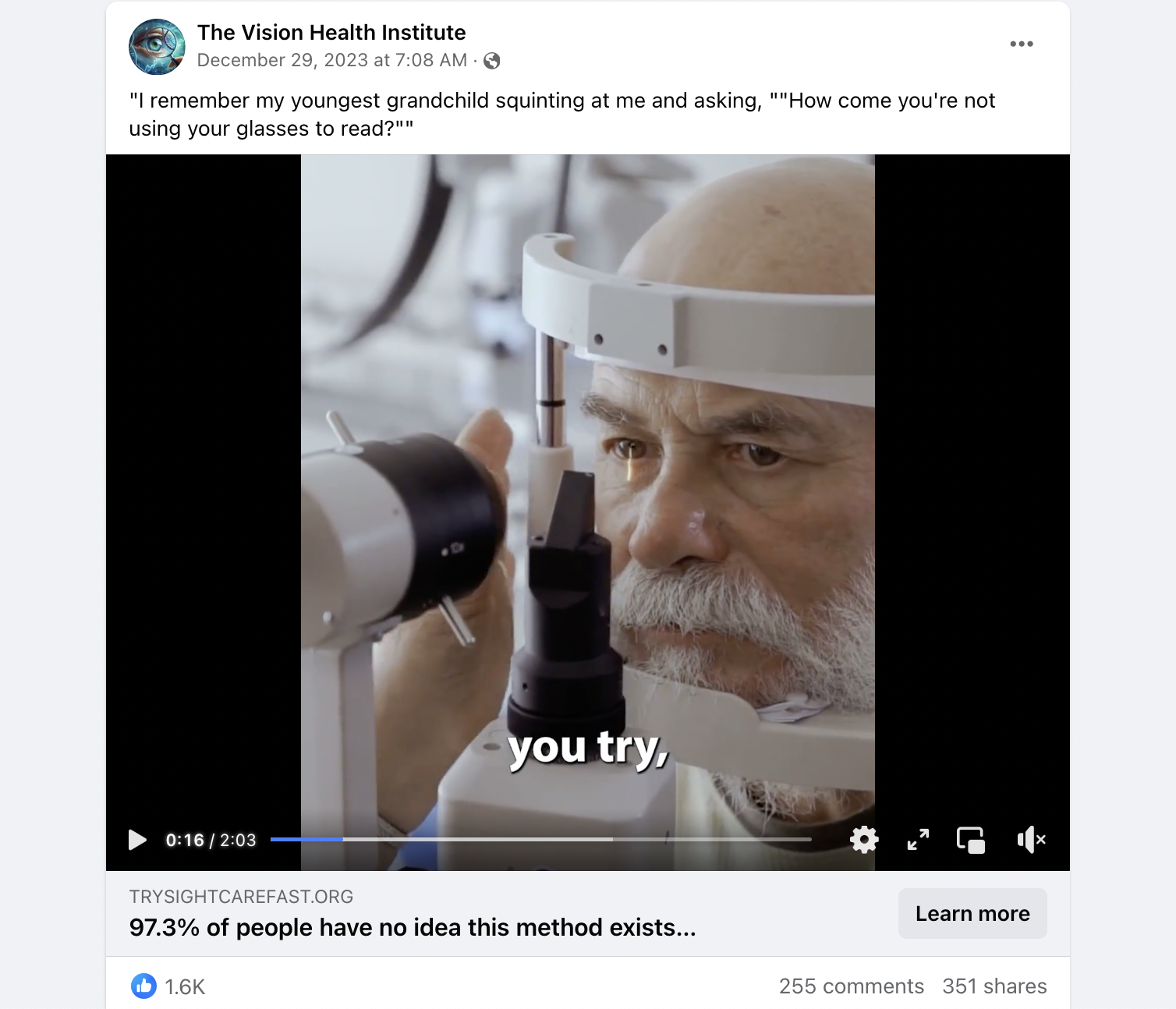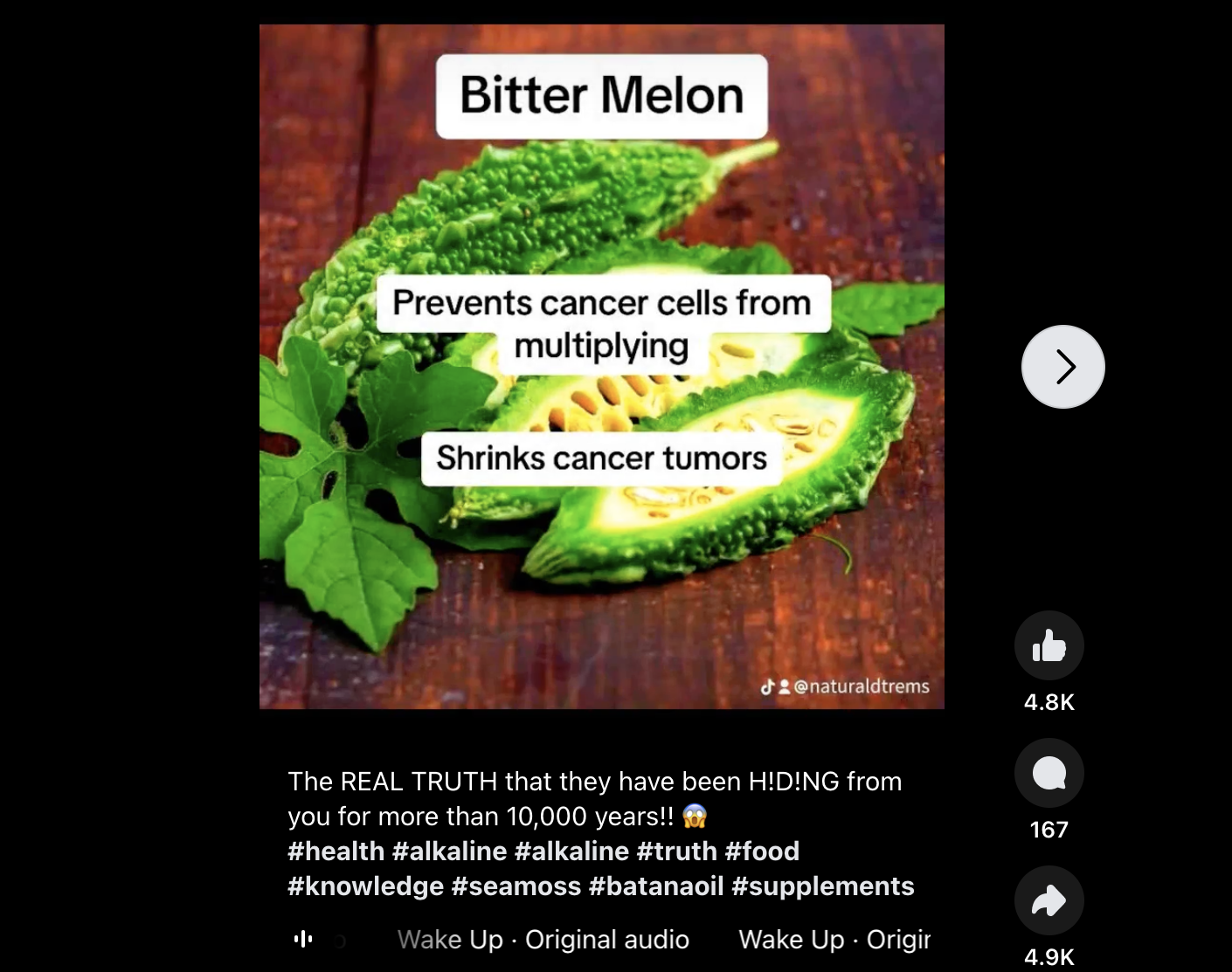- Health
No cure for diabetes currently exists; Facebook posts claiming otherwise use manipulated videos of news to promote fake diabetes cure
Key takeaway
Diabetes is a lifelong disease for which no cure currently exists. However, a balanced diet, an active lifestyle, and medication can help manage glucose levels and prevent disease complications. Products claiming to cure diabetes are therefore a scam and could lead to potentially life-threatening consequences. Such products may contain harmful ingredients or interact with other medications, leading to side effects. They can also lend a false sense of security that may lead a patient to delay or stop taking their medicine. This can result in a dangerous dysregulation in blood glucose levels, increasing the person’s risk of developing nerve, heart, kidney, and other organ damage.
Reviewed content
Verdict detail
Factually inaccurate: While lifestyle changes and medication can help manage diabetes and prevent its complications, there is currently no cure for diabetes. There is also no evidence that any supplement, herb, or alternative therapy can prevent or treat diabetes. News reports allegedly of a new drug that cures diabetes in two weeks are the result of video manipulation.
Full Claim
“I guarantee you that your blood sugar levels will return to normal in three days. All symptoms will disappear within two weeks and diabetes will never return”
Review
In October 2023, videos that appeared to show news reports about a new drug that cures diabetes and its complications spread on Facebook and TikTok. The videos featured popular anchors at major TV networks, including Wolf Blitzer at CNN and Laura Ingraham at Fox News, as well as the alleged developer of the drug, surgeon and TV personality Mehmet Oz.
Similar phrases were used across all these videos, such as claims that with this drug “your blood sugar levels will return to normal in three days” and that the symptoms “will disappear within two weeks” and forever. In addition, the videos showed Oz promising to “pay a million dollars to anyone who could not cure diabetes with his new drug”.
However, these videos are false. There is currently no cure for diabetes and products claiming otherwise are a scam. Furthermore, the news reports shown in the videos have been altered, as we will show below.
No cure currently exists for diabetes
Diabetes is a chronic health condition that impairs how the body turns blood sugar into energy, causing glucose to accumulate in the blood (hyperglycemia). Over time, a high level of glucose in the bloodstream can damage tissues and organs, including the nerves, the heart, the kidneys, and the eyes, resulting in the common complications of diabetes.
Over the last three decades, the number of people with diabetes has increased greatly, and the disease currently affects an estimated 37 million people in the U.S. (11% of the population) and more than 400 million people worldwide.
There are two main types of diabetes, type 1 and type 2, which have different causes and treatments. In type 1 diabetes, the immune system attacks the pancreatic cells responsible for producing the hormone insulin, which is essential for moving glucose from the blood into cells. As a result, the pancreas produces little or no insulin, leading to a buildup of glucose in the blood (Figure 1). Treatment for type 1 diabetes always involves insulin injections to regulate blood glucose levels.
Type 2 diabetes is the most common type of diabetes, accounting for more than 90% of the total number of cases. In the case of type 2 diabetes, the pancreas does produce insulin but in insufficient amounts and cells respond poorly to it (insulin resistance). The end result is the same as in type 1 diabetes: glucose accumulates in the blood (Figure 1). Treatment for type 2 diabetes might involve insulin or other medications, including metformin, a drug that reduces the amount of glucose that the liver releases into the blood.

Figure 1 – Type 1 diabetes occurs when the immune system destroys pancreatic cells, which therefore can’t produce insulin, leading to an increase in blood glucose levels. In type 2 diabetes, the pancreas still produces insulin, although the levels can be reduced. But in contrast to type 1, type 2 diabetes often causes a decreased cell response to insulin (insulin resistance). Source: Diabetes Teaching Center at the University of California, San Francisco.
While several effective medications are available to help control blood glucose levels, no cure for diabetes currently exists. Losing weight, consuming a balanced diet, and being physically active are the best ways to prevent and help manage diabetes, in addition to regular monitoring of blood glucose levels.
News reports appearing to promote a diabetes cure have been doctored
This claim isn’t new. Iterations of videos using images from local news networks and attributing the discovery of a diabetes cure to various personalities have been circulating in several countries and languages for some years. Multiple fact-checking organizations, including Vera Files and Rappler in the Philippines and Bolivia Verifica in Bolivia, reported that the videos have been manipulated using artificial intelligence.
In fact, CNN en Español and CNN Phillippines told Bolivia Verifica and Vera Files respectively that “the image [appearing in the video] is false” and that the media network is “in no way connected to the medicine brand which supposedly cures diabetes”.
The Facebook posts observed by Health Feedback in October 2023 directed users to the web domain vacuolesopor.com, which at the time of writing only contained a few articles about health and nutrition and a link for buying a weight loss supplement. The only reference to the miraculous diabetes cure in the entire site was a screenshot of a Facebook post in Spanish, in which surgeon and Peruvian TV celebrity Tomás Borda purportedly promoted a product called DiaformRX.
In May 2023, Invima, Colombia’s national regulatory agency for medicines, issued an alert about DiaformRX, warning that this product isn’t a medicine, has no proven benefits in diabetic patients, and that its commercialization is illegal. In Spain, the fact-checking organization Newtral and the public national media corporation also cautioned that this product isn’t approved and that the videos impersonated media websites and public figures to promote the product.
Indeed, Borda, Oz, and other media personalities appearing in the videos have publicly denied their involvement in promoting such products and warned about potential scams exploiting their image. In April 2019, Oz wrote an article for the Wall Street Journal that he also shared on Twitter, stating that the ads in which he supposedly promised to cure diabetes in two weeks weren’t “legit”.
Likewise, Borda clarified that he doesn’t tout or promote any product in a 2021 Facebook post.
A search on DomainTools showed that the website vacuolesopor.com was registered on 20 September 2023, shortly before the videos were posted. The Facebook accounts that posted the videos were also created around this time, between 11 September and 12 October 2023. This suggests that the videos may be a strategy to increase traffic to the website by getting users to click on the link on the post.
False diabetes treatments are dangerous
Products claiming to prevent, treat, or cure diabetes are among the most common health scams on the internet.
Diabetes medications, like any other drug, undergo rigorous clinical trials to demonstrate that they are safe and effective. In contrast, many products marketed as over-the-counter remedies to treat diabetes are supplements whose safety and efficacy haven’t been evaluated or for which there is very little evidence of a benefit.
The U.S. Federal Trade Commission and the U.S. Food and Drug Administration (FDA) list several red flags that can help identify potential health scams. The FDA also advises consumers “not to use such products” as they might pose a health risk.
Indeed, bogus diabetes treatments are far from innocuous. First, some of them can contain harmful ingredients or interfere with medication, which might lead to potentially serious adverse effects.
Second, some patients searching for a miraculous cure may delay or substitute effective medical treatment with these unproven and occasionally risky products. For example, the videos discussed above encouraged the patients to abandon medication by providing testimonies of people who purportedly stopped their medication after using the product for a few weeks.
But when left unmanaged, diabetes can result in serious complications, including neurological problems, amputation, kidney disease, blindness, and even death. As the FDA explains:
“Products that promise an easy fix might be alluring, but consumers are gambling with their health. In general, diabetes is a chronic disease, but it is manageable. And people can lower their risk for developing complications by following treatments prescribed by health care professionals, carefully monitoring blood sugar levels, and sticking to an appropriate diet and exercise program”.




